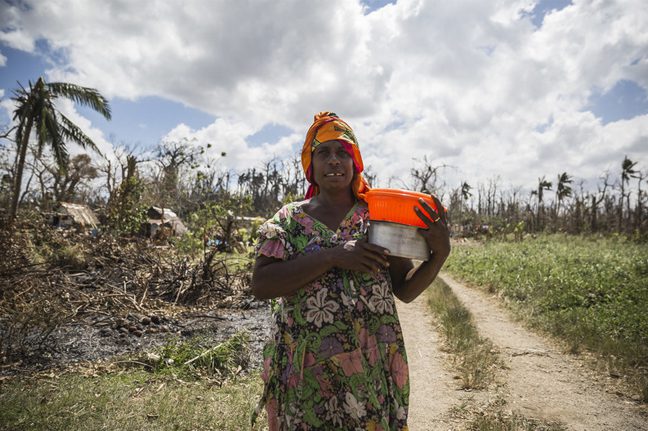By Kate Wingrove, Dietician and Campaigns Volunteer
On 26 May 2015, government representatives, researchers and civil society organisations will meet in Paris to discuss the impacts of climate change on food and nutrition security. Dietician and Oxfam volunteer, Kate Wingrove, explains this important relationship.
What is food and nutrition security?
Food and nutrition security is about having physical, social and economic access to a consistent supply of safe, nutritious and culturally acceptable food. Globally, over 800 million people (that’s one in nine) experience chronic hunger as a result of a consistent lack of food.
We currently produce more than enough food to feed the global population — the problem is that the food we produce is not distributed fairly.
We currently produce more than enough food to feed the global population — the problem is that the food we produce is not distributed fairly.
Our global food system is broken, and without stronger climate action, things are likely to get worse.
Shorter growing seasons, changing rainfall patterns, faster rates of land degradation, increasing ocean temperature, rising sea levels and increased frequency and intensity of extreme weather events all have the potential to reduce food availability and food access.
That means more hunger and more injustice.
Food systems also contribute to climate change. Greenhouse gases are emitted at each stage of the food system, from production right through to consumption. A large proportion of these emissions come from livestock, but food storage, processing, transport and waste are also major contributors.
What can we do as citizens to reduce food and nutrition insecurity?
Food and nutrition insecurity is a complex problem – unfortunately there are no quick fixes. But there’s plenty we can do to promote food system change.
In contrast to the current global food system, a sustainable food system is one that promotes food and nutrition security, environmental sustainability and social justice. At a local level, changing what we eat can make a big difference to the sustainability of the global food system — the food supply responds to consumer demand, so making changes to our own food consumption patterns can enhance food system sustainability and ultimately reduce global hunger.
Be it at a local or national level, I encourage you to take action.



